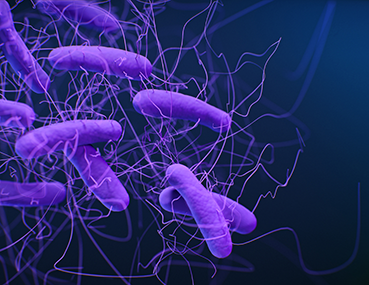
Clostridioides difficile (also known as C.diff) is a type of bacteria which can be found in the large bowel which can cause diarrhoea and most commonly affects people who have recently been treated with antibiotics, particularly the elderly and people whose immune systems are compromised.
You can become infected with C.diff if you ingest the bacterium (through contact with a contaminated environment or person).
C.diff infections can be unpleasant and can sometimes cause serious bowel problems but can usually be treated with another course of antibiotics.
For further information
Visit the NHS website: Clostridium difficile (C. diff) – NHS
Visit our website: Collecting a stool sample
Did you know
- C.diff can be found in the gut of around 1 in 30 adults
- Other healthy bacteria in the gut normally keep C.diff under control
- Antibiotics can interfere with the healthy bacteria in the gut and cause C.diff and other bacteria to multiply
- C.diff bacteria produces toxins A&B, toxin B causes diarrhoea
- Spores from C.diff are passed out in faeces
- Spores can survive on hands, surfaces and other objects for a long time unless they are removed by effective cleaning
Transmission
Faecal-oral transmission
- Not washing hands after using the toilet
- Coming into contact with someone else when they haven’t washed their hands
- Transferring the bacteria to the mouth
Symptoms
- Diarrhoea
- High temperature (fever)
- Loss of appetite
- Feeling sick
- Stomach pain
Useful resources
- SIGHT poster
- C .diff policy Care Homes
- C. diff policy Domiciliary Care
- C. diff policy General Practice
- C. diff Newsletter Dec 24
- C. diff GP Newsletter Dec 24
- C. diff Patient Information Leaflet
- C. diff Care Home Checklist
- C. diff aide memoire Care Home
- C. diff aide memoire GP
- Vancomycin Patient Information